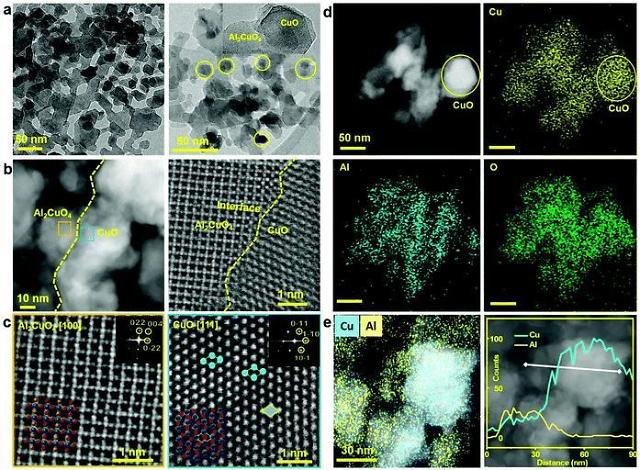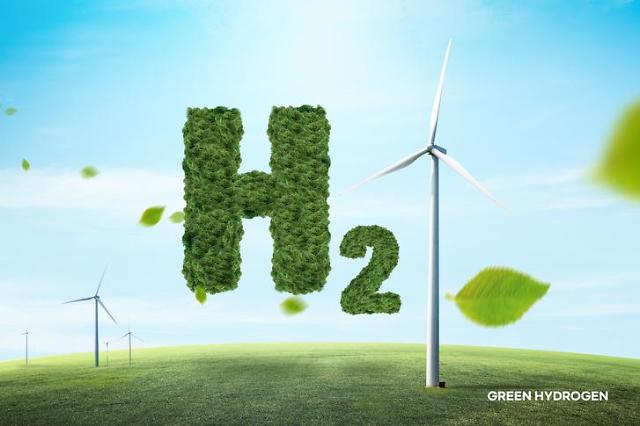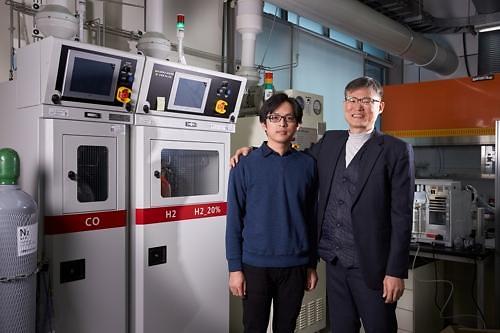
[Courtesy of UNIST]
Ethylene is a hydrocarbon regarded as the world's most important chemical. The hydrocarbon containing carbon-carbon double bonds is produced by heating natural gas. Ethylene is a starting material for polyethylene that is used for the production of packaging films, disposable bottles, wire coatings, and other vinyl products.
The hydrocarbon is also a starting material for two-carbon compounds such as ethanol (industrial alcohol), ethylene oxide which can be converted into ethylene glycol (antifreeze), polyester fibers, acetaldehyde, and vinyl chloride. Ethylene can be combined with benzene to form ethylbenzene which is used for producing styrene for plastics and synthetic rubber.
The Ulsan National Institute of Science and Technology (UNIST) said that researchers from UNIST, the Korea Advanced Institute of Science & Technology (KAIST), and the Korea Institute of Energy Technology (KENTECH) have created an electrochemical catalyst made of a copper-aluminum alloy that can convert carbon dioxide into ethylene. Electrodes coated with the catalytic material showed a current efficiency of 82.4 percent, which is regarded as the top efficiency rate among catalysts.
Researchers said that the high current efficiency rate of 421 milliamperes per square centimeter is about double of commercialization standards of 200 milliamperes per square centimeter. Electrodes can be simply submerged in a heated special solution to create ethylene.
"This technology can catch two birds with one stone by eliminating carbon dioxide and producing ethylene in an eco-friendly way," UNIST researcher Kwon Young-kook said in a statement on April 24.




